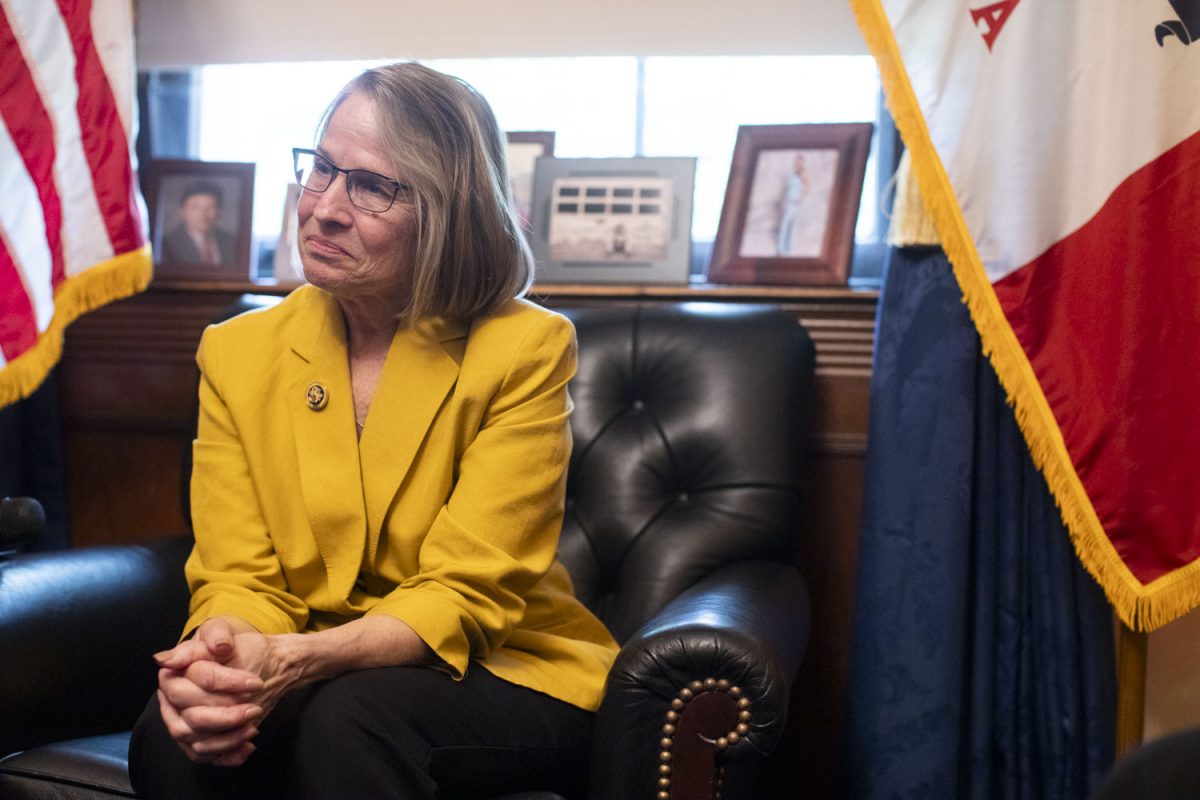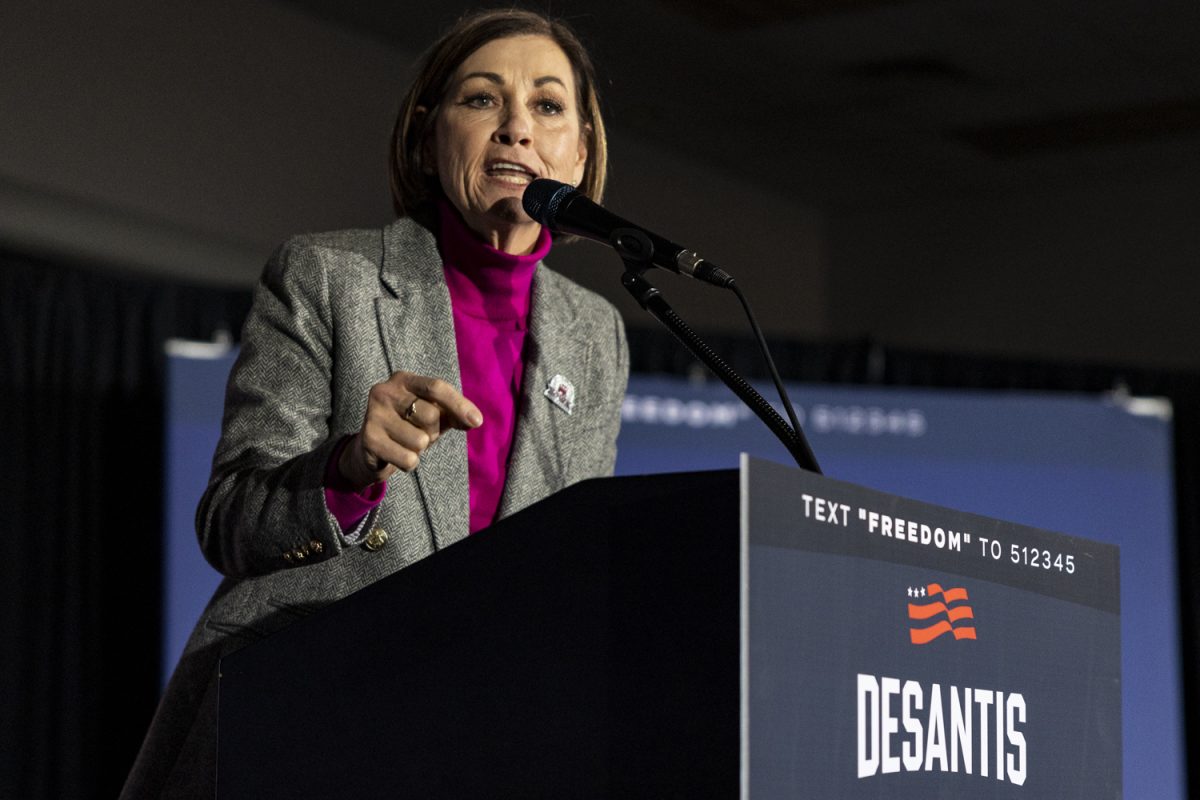Speakers overwhelmingly opposed a proposed bill that would require citizenship or legal residency status verification for those seeking public assistance during a hearing on the bill Tuesday.
A panel of Iowa lawmakers advanced the bill, House File 2112, with two Republican lawmakers voting for the bill, and the lone Democrat dissenting.
The bill would require noncitizens to submit documentation to prove their legal residency in the U.S. to be eligible for public assistance. The bill would outline a new criminal offense relating to human trafficking and establish fines and jail time for the crime.
Yesterday a separate panel advanced a bill, House File 2128, requiring students to prove their U.S. citizenship to receive in-state tuition and fees. The bill was similarly opposed by speakers in attendance and the Democrat on the panel.
That pair of bills came after Iowa Gov. Kim Reynolds’s efforts to control illegal immigration in Iowa, as well as her support of Texas’ effort to secure the border, issuing a statement on Thursday supporting Texas Gov. Greg Abbott.
Gabriel Saldana, a community organizer at Iowa Migrant Movement for Justice, said although it wouldn’t further restrict immigrant families from accessing most services, it could create an inhospitable environment that could hinder eligible people from receiving the services they’re entitled to.
Saldana also said he was concerned about the potential effect the bill could have on everyday life for those targeted by the bill.
“[It] could lead to people being arrested for driving their dad to the doctor; Uber drivers, paramedics doing their everyday work; pastors being charged with felonies for giving someone to ride to church,” Saldana said.
Luke Elzinga, the policy manager at the Des Moines Area Religious Council, was another speaker in opposition to the bill. Elzinga said the council believed the bill was redundant considering the existing steps people go through when applying for benefits, calling it a “solution in search of a problem.”
He added the bill could result in longer delays for programs, such as Supplemental Nutrition Assistance Program, or SNAP.
“We also believe this bill reinforces harmful anti-immigrant rhetoric that can prevent mixed-status households from enrolling eligible citizen children in SNAP,” Elzinga said. “These are children citizens eligible for the program who are not participating out of fear, and we believe this bill further contributes to that fear and chilling effect.”
Laura Hessberg, director of Public Policy at the Iowa Coalition Against Domestic Violence, said the coalition was concerned division two of the bill, which defines smuggling and provides penalties, could result in victim service providers being charged for doing their jobs.
“Because certain services offered are necessary to protect the health and safety of lives, just like firefighters EMTs police while doing their jobs, service providers routinely transport crime victims to forensic exam after a race or to an emergency shelter or they also in the course of providing services,” Hessburg said.
The bill, she said, requires more nuance to avoid any problems that could potentially arise.
The lone Democrat on the panel, Iowa Rep. Rick Olson, D-Des Moines, was the dissenting vote on Tuesday.
Despite the opposition from lobbyists and Iowa residents in attendance, Republican representatives on the panel still thought the bill was an important one.
“Taxpayers of Iowa should not have their money going to people who are not here illegally,” Iowa Rep. Skyler Wheeler, R-Orange City, said. “The state of Iowa and our taxpayers should not be on the hook for the Biden administration’s purposefully flooding the country with illegal aliens.”
Iowa Rep. Steven Holt, R-Denison, said he was open to changes to division one, but added there was nothing moral about what is happening on the border, citing human and sex trafficking, and deadly drugs entering the border.
There have been roughly 7.2 million instances of migrants at and between ports of entry during the Biden presidency, according to a Politifact analysis. That number, however, is not reflective of the total number of border crossings; it tracks events instead of people, meaning that an individual could be tracked twice.
“Iowans only recently heard a real-life scenario from DPS in which had the smuggling components of this proposed legislation been on the books, they could have detained at least 10 individuals that they had to watch drive away so we will advance this legislation to the full Judiciary Committee,” Holt said.
Roxy Ekberg contributed to this report.










